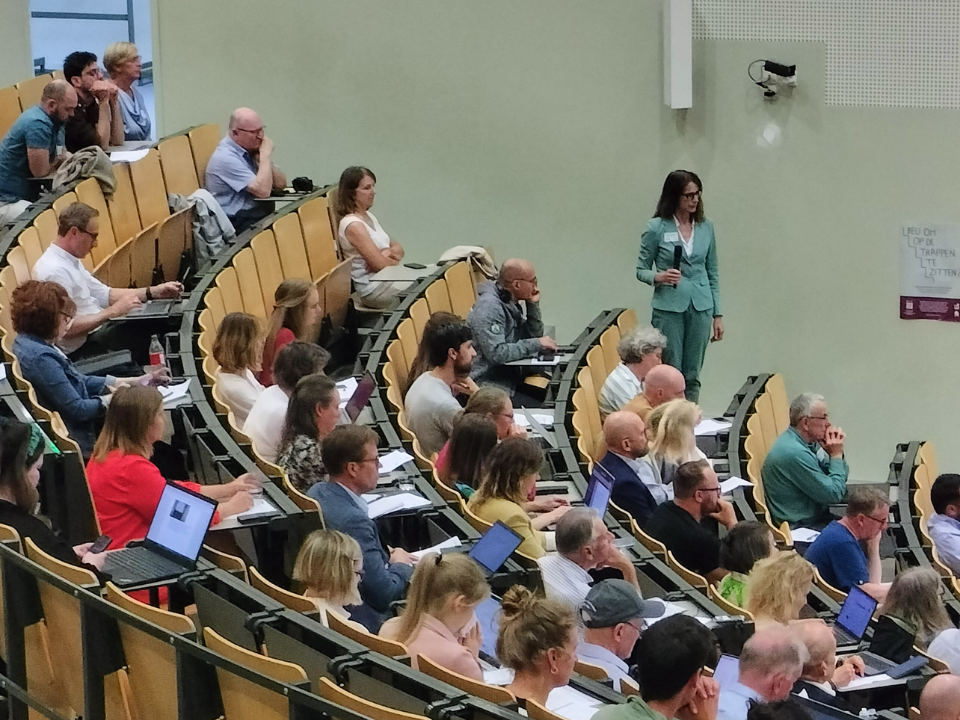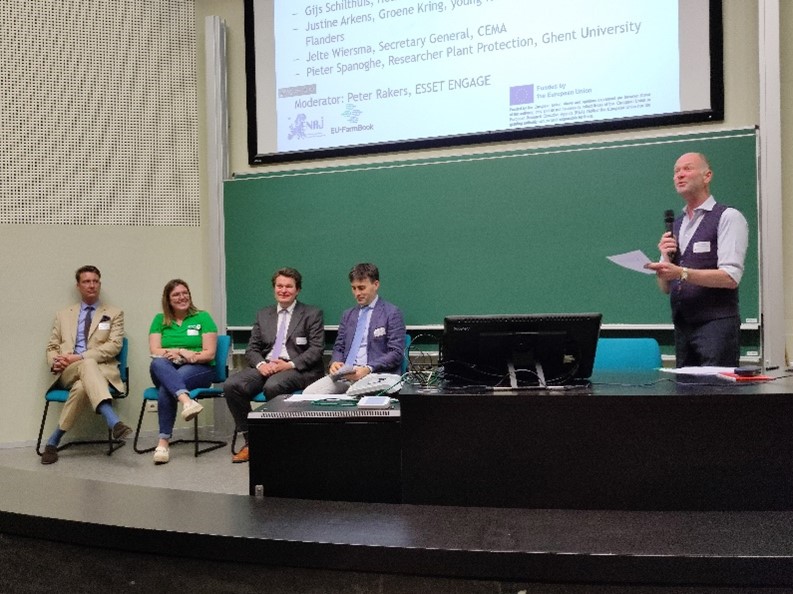Celebrating Women in Agriculture: EU-FarmBook wishes Happy International Women´s Day

[08/03/2024]
The world is striving for gender equality. Agriculture and forestry are no exception. For centuries, women have been the backbone of agriculture. Despite their central role, women have historically faced significant barriers to access resources, land, technology and markets. Empowering women in agriculture is not only a matter of gender equality; it is essential for economic development, environmental sustainability, and food security. Women bring unique perspectives and innovations to agriculture and are often at the forefront of adopting sustainable practices that benefit the environment and enhance biodiversity.
The European Commission supports projects for gender equality in agriculture all year round. But why not celebrate International Women´s day by highlighting some of these projects?
FLIARA – Female-Led Innovation in Agriculture and Rural Areas
One of those projects is the EU-funded FLIARA project that aims to create a more sustainable future by highlighting the role of women in agriculture and rural areas and boosting gender equality to empower women in EU farming. FLIARA stands for Female-Led Innovation in Agriculture and Rural Areas. According to project coordinator Professor Maura Farrell, women in the agricultural sector have to face many obstacles such as education gaps, gender stereotypes, limited confidence, and challenges in balancing work and family responsibilities, and barriers accessing resources like land, finance, and business networks, compounded by patriarchal inheritance practices.
The project will create practical tools and policy proposals to enhance women´s capacity in innovative practices in agriculture and rural areas. FLIARA will combine futures, case study methods, network building, and policy benchmarking to identify visions for sustainable farm and rural futures and the innovations required. Overall, they want to heighten visibility and awareness of female-led innovations. FLIARA is committed to strengthening the visibility and awareness of women-led innovations. This will be achieved initially by carrying out a series of case studies with agricultural and rural women engaged in sustainable innovations across the EU. The project will build a Community of Practice developed with women identified throughout the project’s case studies alongside key innovation policy and governance stakeholders. The Community of Practice Network will spotlight women as key innovation actors. Maura Farrell explains, that it is essential to identify women already carrying out innovation projects on farms and in rural areas, which can inspire other women to do likewise. These women can play a key role in transferring their knowledge, while encouraging policy change around key issues which can enhance women-led innovation. Providing easily accessible knowledge for practitioners, particularly for women in agriculture, is crucial. It empowers them with the necessary tools and information to enhance productivity, sustainability, and economic independence. By breaking down barriers to access, we can amplify the impact of female agricultural innovators, driving positive change across communities and industries.
The EU-FarmBook platform can support projects like FLIARA by providing a centralized space for women-led innovations to be displayed and disseminated, says Maura Farrell. In spotlighting and disseminating the innovation led by women, EU-FarmBook can amplify the visibility of women in agriculture and rural areas and celebrate the work they are doing and encourage others to do likewise.
“Our vision is to have a thriving agricultural sector and rural environment that champions equality and inclusion, where opportunities are accessible to all, regardless of gender.” says the project coordinator Maura Farrell, Professor at University of Galway.
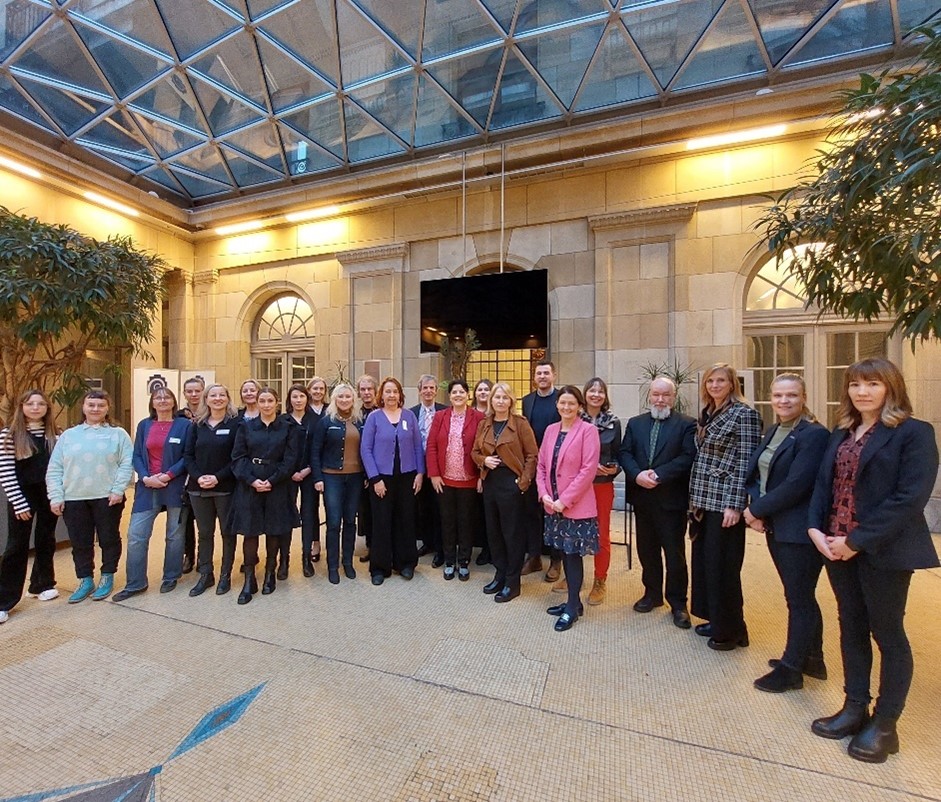
In January 2023, the project team met for the FLIARA kick-off in Brussels, Belgium.
(Photo: Consulta Europa Projects and Innovation)
Supporting Women-Led Innovations in Farming and Rural Territories
SWIFT is a four-year project funded by Horizon Europe. It aims to reinforce and amplify innovations led by marginalized actors in European agriculture. Project coordinator Professor Marta Rivera-Ferre explains that women farmers, LGBTQ+ farmers, migrant women and agricultural workers face unequal social, economic and political structural barriers in European agricultural and food systems. SWIFT stands for Supporting Women-Led Innovations in Farming and Rural Territories. The project coordinator explains that in SWIFT, Women-led innovations (WLIs) refer to grassroots innovations that address structural inequalities in agriculture in rural areas.
SWIFT will contribute to gender mainstreaming in agricultural and food policies by providing theoretical and practical tools (farm viability indicators; gender responsive budgeting; participatory feminist methodologies) to favor a change of framing in those policies towards food as a human right, that are necessary to promote sustainable transformation in agriculture and food, including the transformation of gender norms. SWIFT adopts a feminist, human rights-based, participatory and inclusive research methodology that applies an intersectional perspective, thereby rendering visible diverse experiences of inequality and giving a voice to those who are most marginalized.
“Our aspiration is to contribute to a change of framing within EU policies of food as a commodity towards food as a human right. We hope that this will bring major changes in terms of access to land, working conditions of agricultural workers and other people employed in the food system, dignified farming conditions for all, and more equity”, says Marta Rivera-Ferre.
EU-FarmBook is an opportunity to make the visual material produced in SWIFT more accessible. According to Rivera-Ferre it is important to create spaces where actionable knowledge can be shared. Through networking and social learning, the thousands of initiatives that are transforming Europe’s agricultural and food systems from below can be strengthened, made more visible and promoted.

The SWIFT project got together during their inception workshop in May 2023
(Photo: Mar Calvet)
Gender Equality in Rural and Agricultural Innovation Systems
Grass Ceiling is a Horizon Europe project looking at supporting women-led innovation in rural areas. Led by South East Technological University, the project unites a powerful consortium of partners across Europe, all dedicated to supporting women entrepreneurs and fostering innovation in rural areas.
The project will establish a network of nine living labs across Europe, spanning Ireland, Croatia, Italy, Lithuania, Netherlands, Norway, Scotland, Spain, and Sweden. These living labs will serve as crucial hubs for knowledge exchange, collaboration, and innovation. Rural women entrepreneurs will have access to valuable resources, mentorship, and training opportunities, fostering a supportive environment to cultivate their ideas and translate them into reality.
Grass Ceiling centers on a core objective: to significantly boost women-led innovations in agriculture. This ambitious goal directly addresses the underrepresentation of women in the agricultural sector, a traditionally male-dominated field. As part of the project, partners will gather insights into current agricultural and rural policy support for women in agriculture. This crucial data will be used to advocate for improved gender mainstreaming and budgeting within the agricultural sector.
EU-FarmBook is a pivitol platform to share innovations and replicate the supportive environment stemming from the impact of Grass Ceiling project. By empowering rural women and fostering innovation Grass Ceiling has the potential to revolutionize the agricultural sector in Europe. The project’s success will pave the way for a future where women are not only valued members of the agricultural workforce but also recognised as key drivers of innovation and progress.
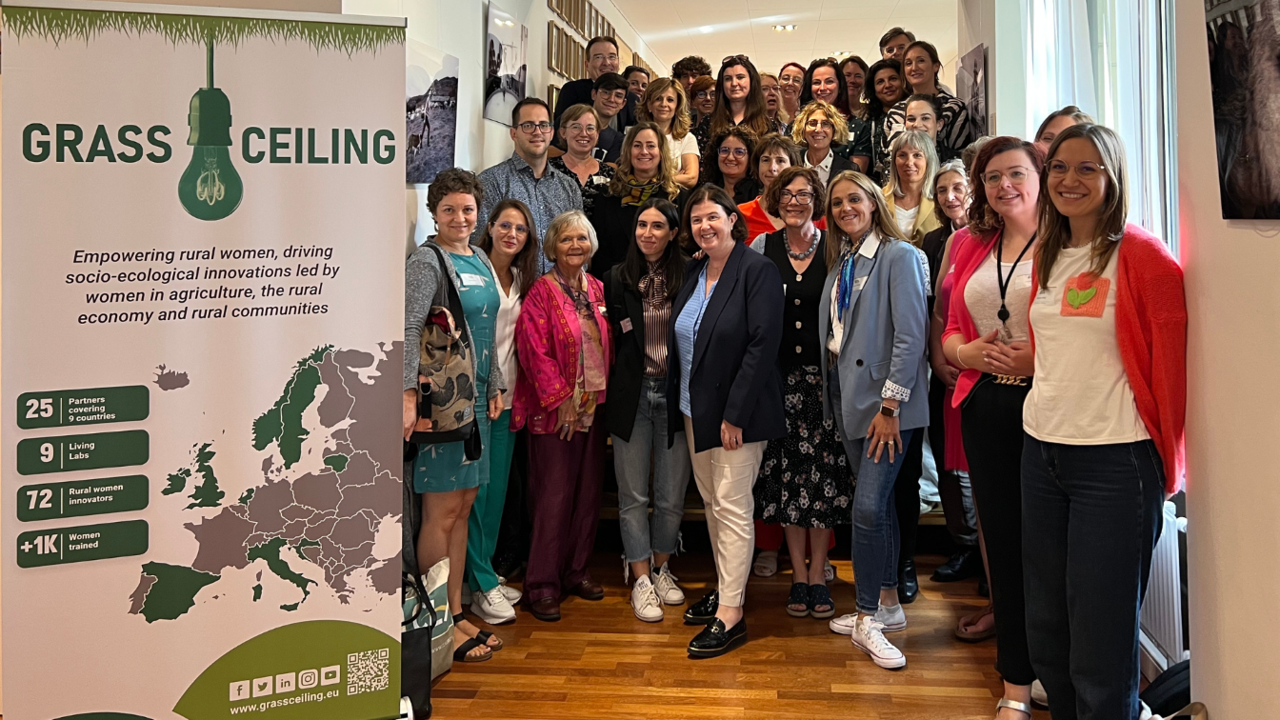
The GRASS CEILING Consortium met in Brussels für their first showcase event in September 2023
(Photo: GRASS CEILING)
PREMIERE – Preparing multi-actor projects in a co-creative way
The project PREMIERE aims to enhance the collaboration on equal levels during the preparation phase of a multi-actor project. For that reason, gender and equality issues are relevant. It is all about co-creation for innovation between partners, which aim to develop innovative solutions for farmers, foresters and other rural businesses. The EU-funded PREMIERE project will develop a set of online material, which will also be available via EU-FarmBook such as a MOOC, a Serious Game, How-to-Guides, or video diaries. Depending on the innovation project and the context, men and women might communicate and organize co-innovation in slightly different ways. PREMIERE will provide support to all types of actors and their particular needs and practices emerging from the economic, social, cultural or demographic contexts across Europe.
PREMIERE is an EU-FarmBook sister project that is all lead by women. Professor Anna Häring, Dr Susanne von Münchhausen and Dr Lisa van Dijk from Eberswalde University for Sustainable Development (HNEE) are aiming to apply consequently the multi-actor principles within PREMIERE. The project leaders say: “Ensuring communication and collaboration on equal levels throughout the project work is challenging. We are only starting to understand potential gender-related differences. In this early phase, it’s about raising awareness and encouraging everybody to highlight their concerns.“
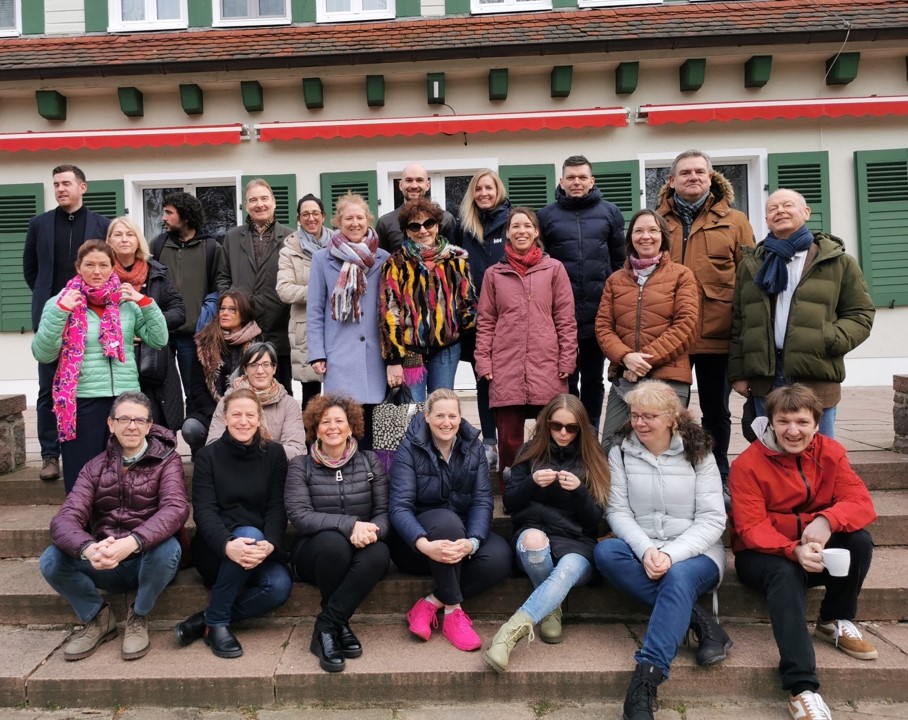
The members of PREMIERE consortium met in March 2023 in Eberswalde and Doellnsee.
(Photo: PREMIERE)
The Role of EU-FarmBook in Empowering Women
The EU-FarmBook is a Horizon Europe funded project that is working at regional, national, and European level to build an online platform for gathering and sharing agriculture and forestry knowledge. EU-FarmBook serves as a comprehensive knowledge and networking platform for the agricultural community. It provides access to a wide range of resources, including best practices, research findings, technological innovation, and training opportunities. It offers practice orientated materials in diverse forms such as videos, podcasts, presentations, documents and images.
Inge De Bo, scientific coordinator from Ghent University, says the EU-FarmBook consortium, with 29 partners from 18 countries, is building a platform to connect and to empower all farmers, foresters and advisors. “We are creating a home for all innovations in agri-food and forestry and we will put the spotlights on women-led innovations, as all above gender equality related projects will upload their project results into the EU-FarmBook”, she stresses.
By future collection creation, the contributions of FLIARA, SWIFT, PREMIERE, and many other EU-funded gender equality focussing projects will be visible for the long-term. FarmBuddy, the AI robot of EU-FarmBook will help all users of the platform to search for specific knowledge, including the women-related contributions. All the practical knowledge developed by women in one region can be found, read in their own language (future feature) and implemented in other regions/countries across Europe. According to the Scientific Coordinator, female platform users can be students (our next generation farmers), trainers, educators, policy makers, journalists, besides our prioritised target group of practitioners. The EU-FarmBook community on the platform is already large and will grow, so FLIARA, SWIFT, PREMIERE, and many similar projects can benefit from this community, with gender equality as one of the seven quality criteria to develop and maintain a trustworthy platform. By covering many relevant actors in the agriculture and forestry communities, the daily use of the women-led innovations across Europe is ensured.
Young girls, teenage females, and women actively engaged in farming and other rural sectors are encouraged to connect with their peers on the EU-FarmBook platform. They can benefit from the insights of fellow female contributors or inspired by practice-oriented materials derived from projects such as FLIARA, SWIFT, Grass Ceiling and PREMIERE.
“We must not underestimate the impact of role models in inspiring, dreaming and/or acting to follow the paths of the empowered women”, says Inge De Bo. There will be platform users interested in participating in multi-actor projects, becoming a female project partner in EU-funded projects, creating new project outputs, which on their turn can be uploaded to the platform, closing the circle of creating knowledge and (re)using knowledge. In this way, the impact of the female-led project outcomes will be multiplied and amplified. The research results, gathered in Research & Innovation projects, will be implemented in the practice, overcoming the barriers of language, gender inequality and geographical locations.
Inge De Bo invites all project coordinators of societal challenge H2020 projects and female-focussed Horizon Europe projects to connect with the EU-FarmBook platform. “We warmly welcome all practice-oriented materials, in attractive formats, easy to understand sentences, with many women in action.” She congratulates and says:
“Let’s share the magnificent women-led innovations! Let’s invite the EU-FarmBook community to recognise the invaluable innovations of empowered women today! Let’s put the spotlight on the women in action in agriculture and forestry!“
Happy International Women’s Day!
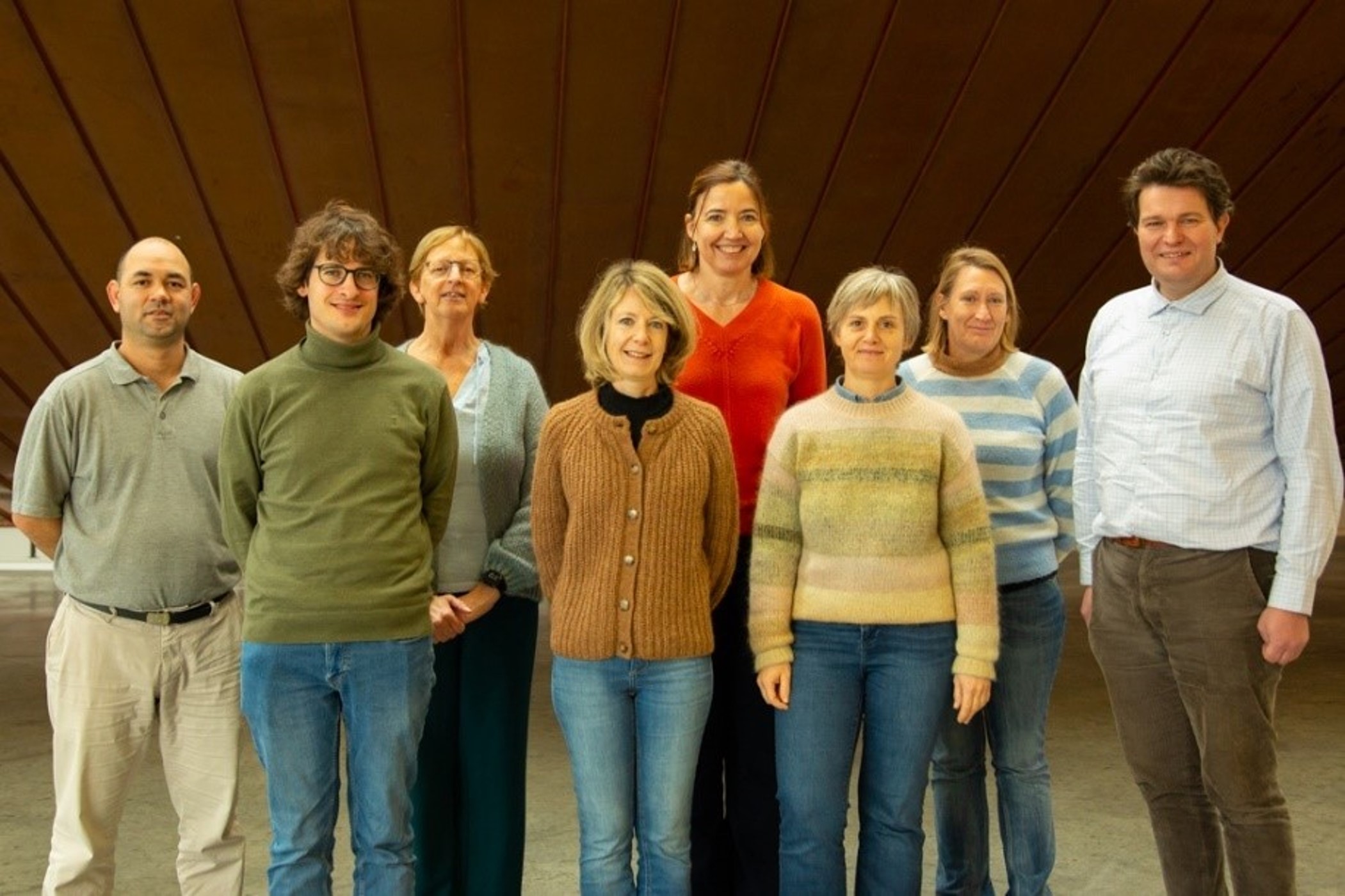
Inge De Bo, Scientific Coordinator of EU-FarmBook (third person from the right)
and the team of Ghent University wish a happy International Women´s Day.
(Photo: UGent)
